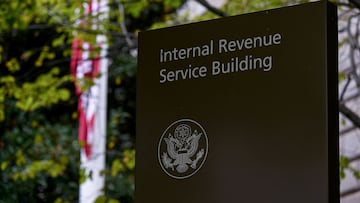The tax loophole the IRS wants to close to generate over $50 billion from the rich
The IRS intends to close a loophole used by rich taxpayers to avoid paying what they owe. The move could generate over $50 billion in additional revenue.


The IRS plans to go after rich taxpayers by closing a major loophole being used by the wealthy to avoid paying the taxes they owe. Ending the loophole could generate over $50 billion in additional revenue for the tax agency over the next ten years, said the Treasury Department.
The IRS aims to end partnership basis shifting, a practice used by businesses and individuals to move assets between related parties for purposes of tax evasion. Partnerships have been allowed to transfer tax liabilities to related legal entities to maximize tax deductions.
The Internal Revenue Service’s proposed rule and guidance was formulated after they studied this shifting practice and determined that these transactions have no real economic basis. Large, complex partnerships have taken advantage of the tax loophole, using it as a tax shelter for the wealthy.
READ ALSO: Second major cyberattack on car dealerships this month raises questions about security
The IRS announced plans to close a tax loophole exploited by the wealthy.
— Robert Reich (@RBReich) June 18, 2024
It's expected to raise $50 billion over 10 years.
That's on top of the $560 billion in unpaid taxes the IRS expects to collect over the decade, largely from the rich.
This is why you fund the IRS. pic.twitter.com/GoGxgcneam
READ ALSO: American taxpayers who would be affected by the IRS and Treasury plan to collect taxes
Additional IRS funding helps crackdown on wealthy tax payers
Government officials say the new rules were created as a result of increased audits of large partnerships, which were made possible due to $60 billion in additional funding given to the agency by a measure approved by Congress in 2022.
Due to lack of funding in the past, the IRS conducted less audits of rich individuals, and the practice of partnership basis shifting became prevalent.
Related stories
“The proposed regulations, once finalized, would effectively eliminate the inappropriate tax benefits created from these abusive transactions between related parties,” the Treasury Department said in a statement.
The Treasury said they estimate that there is a deficit of $160 billion when comparing what the rich pay in taxes to the actual amount they most probably owe.


Complete your personal details to comment